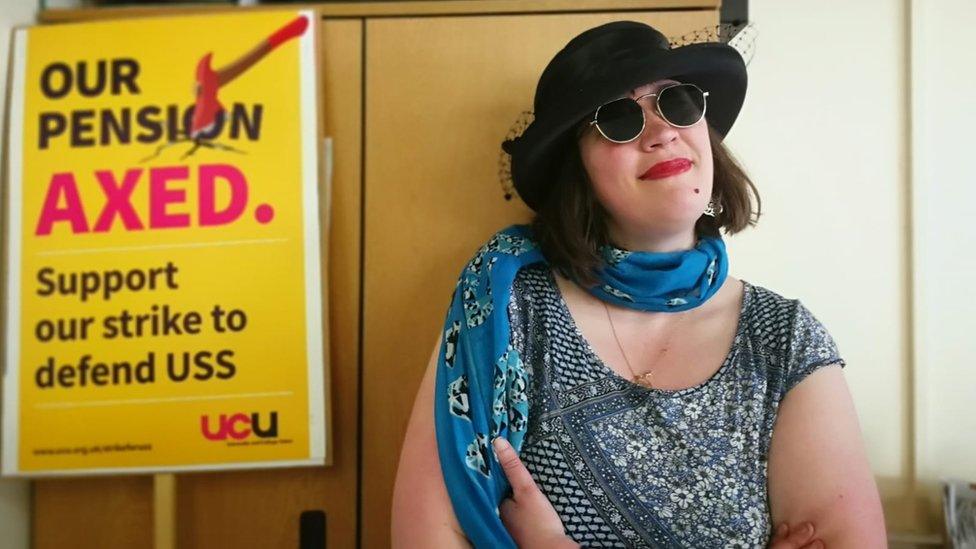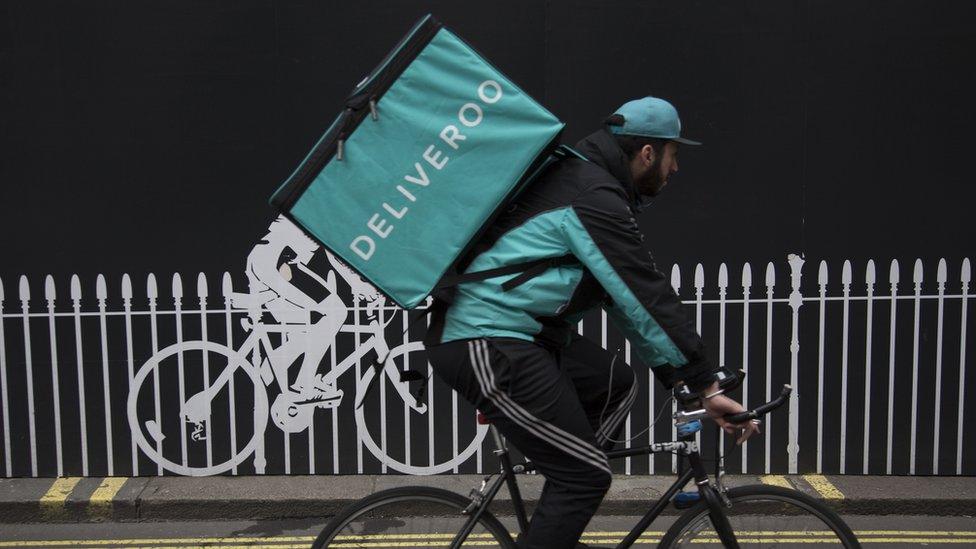Ken Loach film used by Cardiff University postgraduate tutors in work row
- Published

Cardiff University postgraduate student Grace Krause says she wants to highlight the issue of precarious employment
Postgraduate tutors in a row with a university over pay and conditions are using a film screening to highlight what they call "precarious employment".
A workshop by a campaigners will run ahead of Ken Loach's film Sorry We Missed You on Saturday.
Cardiff University postgraduate student Grace Krause said she hoped the film would "make people realise how messed up things are".
But the university said tutoring allowed students to develop skills.
Another student working for a delivery company said she valued the flexibility of the "gig economy".
The film follows a Mancunian delivery driver struggling to support his family and the consequences of zero-hours contracts.
Speaking at the premiere at the Cannes Festival in May, Loach warned zero-hour contracts could "kill" and accused companies using them of turning working-class people "on and off like a tap".
According to the Office for National Statistics, about 50,000 people in Wales are on a zero-hours contract, external, or 3.4% of people in employment.

Ken Loach's films often tackle themes such as inequality and poverty
The Cardiff branch of the University and College Union has been campaigning for the work of postgraduate students who teach or demonstrate at the university to be recognised as employment.
And on Thursday the union's members working across UK universities also backed strike action, external in ballots over pensions, pay and working conditions.
Allow X content?
This article contains content provided by X. We ask for your permission before anything is loaded, as they may be using cookies and other technologies. You may want to read X’s cookie policy, external and privacy policy, external before accepting. To view this content choose ‘accept and continue’.

A Cardiff University spokesman said supporting the learning of others was "a valuable opportunity for postgraduate research students to develop their professional skills".
He said the hours allocated to postgraduate tutors were "carefully monitored" and "no postgraduate research student can be paid at a rate that is lower than the university's standard hourly pay rate for the role."
Speaking about the wider issue of the gig economy, Ms Krause said: "People are often broken by this - the financial insecurity, not knowing when their next pay cheque will come in.
"People lose a lot of confidence. People think they don't deserve any better and don't believe things could be any better. That is worth fighting."
But another Cardiff University student said being part of the gig economy worked around her studies.
Emily Cox, 22, from Oxfordshire, is in her final year of a neuroscience degree and has been delivering food for Uber Eats for a couple of years.

Emily Cox is a keen cyclist and says working for Uber Eats means she can earn money and exercise at the same time
"I do it about twice a week. It's really flexible hours, you just turn the app on when you want to do it," she said.
"I do it after being in the lab all day. It's about £10 an hour so I do two to three hours. My boyfriend did it for a bit and I realised I could do it too."
And the keen cyclist said the work had the added benefit of keeping her fit: "It's like being paid to go to the gym," she said.
Stage of life
"For me it's the flexibility. I don't have to worry about fitting in a certain number of hours a week.
"I can do it whenever I want, I enjoy the exercise and it combines it with earning money."
But she appreciates this type of work would not work for everyone: "It depends on the stage of life you're at.
"I'm doing it for an extra bit of income. If I was doing it to pay the rent it would be a lot more stressful because you don't know if you're going to earn enough.
"Zero-hours contracts are good if you're at the right stage of life like a student but for someone who's trying to earn a living it wouldn't be ideal."
- Published10 February 2017

- Published28 June 2019

- Published2 April 2018
